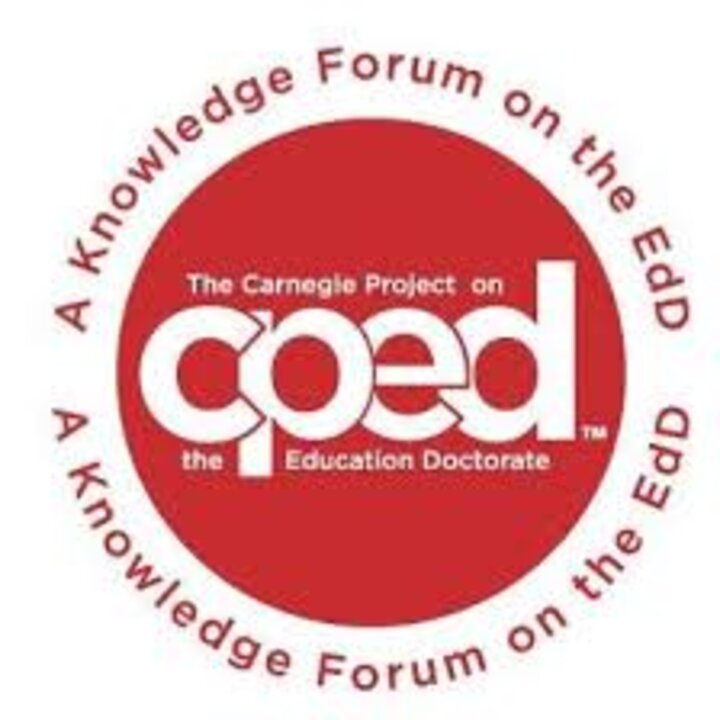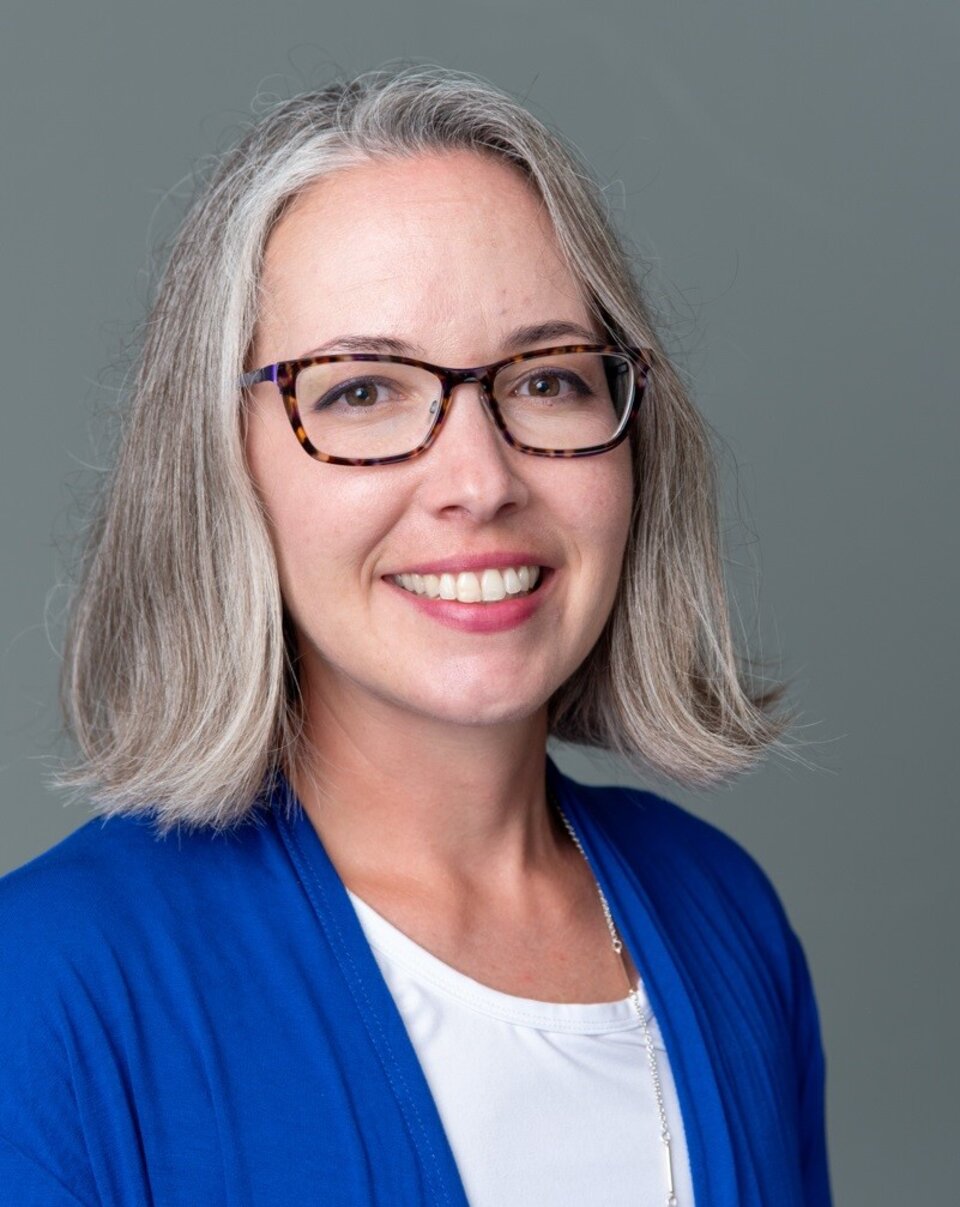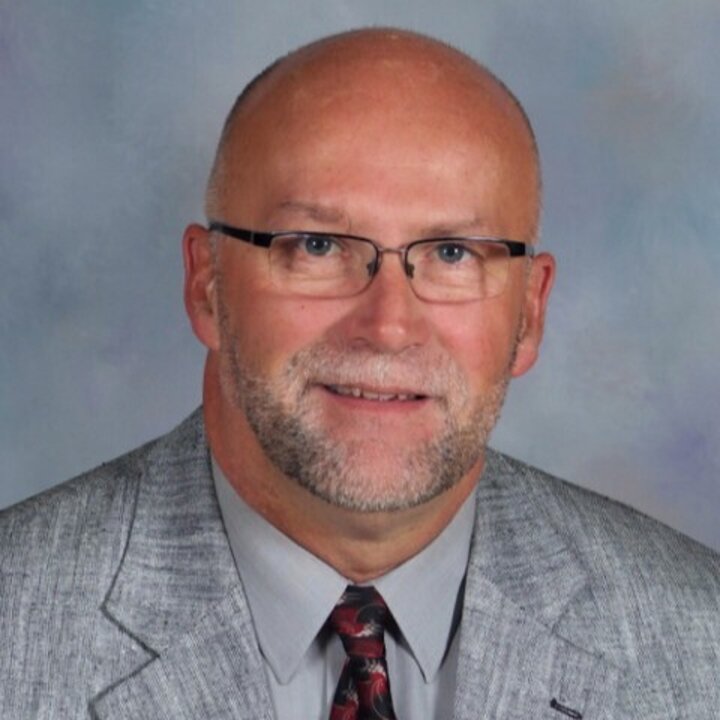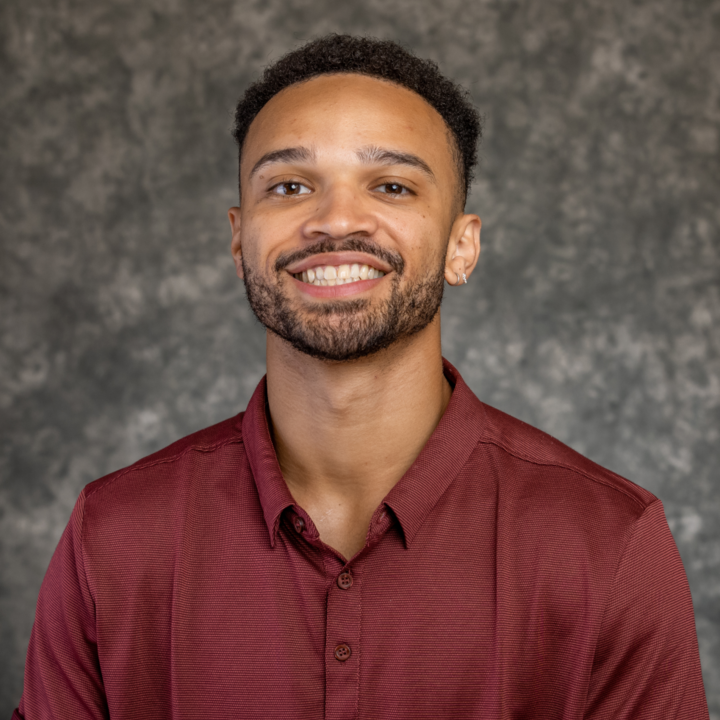Educational Administration
Doctor of Education (Ed.D.)
Applying to our P–12 School Leadership programs?
You could qualify for a 15% tuition discount through the Big Red Leader Tuition Remission program
Leading for Leadership Excellence
Are you a working professional striving to reach new heights in your educational career? Look no further! At UNL, we understand the unique challenges faced by educators like you, and we've designed our programs with your needs in mind. The EdD in P-20 Education is an applied professional degree that prepares scholarly practitioners to lead continuous improvement in educational organizations at all levels. Through coursework and a Dissertation in Practice (DiP) students will gain knowledge, skills, and dispositions to:
- understand education from a systems perspective
- to change the ways educational organizations reproduce structural inequalities
- to integrate research, policy, theory and meaningful practice to serve the needs of communities
- to enhance effectiveness through sustainable improvement
This program is designed for educational leaders seeking to enhance their capacities to lead change at the school, district, university, system, or state-level and other educational settings and organizations.
Specializations
The Ed.D. offers a cohort-based learning experience. The program has three different specializations including (a) Community Colleges, (b) Higher Education, and (c) P-12 System Level School Leadership.
Community Colleges
The Ed. D. in Educational Administration with a specialization in Community Colleges allows students who are focused on community colleges to advance their knowledge in the field so that they can be more marketable when advancing in their career.
Higher Education
The Ed. D. with a specialization in Higher Education allows students focused on colleges or universities to advance their knowledge and leadership skills for career advancement as higher education leaders, practitioners, and administrators.
P-12 System Level School Leadership
The Ed. D. with a specialization in P-12 System Level School Leadership allows students who are currently employed in an administrative position in a P-12 school or district to advance their knowledge and leadership skills for career advancement and impact. Students selecting this specialization have three pathways: (a) an Ed.D. with the superintendent endorsement, (b) an Ed.D. without the superintendent endorsement, and (c) the UNL-UNK joint Ed.D. pathway.
For students choosing the Ed.D. pathway with a superintendent endorsement, upon completion of UNL courses and field-based internship, students are prepared to take the state-required PRAXIS Exam and upon passage, apply for superintendent endorsement in Nebraska. For students choosing the UNL-UNK joint Ed.D. pathway, please contact EDADPrograms@unl.edu.
Students considering doctoral work in Educational Administration often question the differences between the Ed.D. or Ph.D. To determine which is a better fit for you, consult the department's Doctoral Degree Information page.
#LEADBIGRED
Request Information
Cost
*EDAD tuition is classified under the University's base tuition rate*

3-5 years
Program Length
60*
*Credits Required beyond the master’s is typical
Online
Format
Not Required
GRE/Entrance Exam
Faculty Scholars and Advisors
We encourage prospective applicants to learn about faculty scholars and advisors for this program!
- Dr. Elvira Abrica (HE/CC)
- Dr. Deryl Hatch-Tocaimaza (HE/CC)
- Dr. Shavonna Holman (P-12)
- Dr. Taeyeon Kim (P-12)
- Dr. Elizabeth Niehaus (HE/CC)
- Dr. Milad Mohebali (HE/CC)
- Dr. Jiangang Xia (P-12)
- Dr. Sarah Zuckerman (P-12)
- Dr. Channel McLewis (HE/CC)
- Dr. Scott Sturgeon (P-12)
Our Unique Program
Award-Winning Faculty
- Distinguished faculty make up the heart of our program. Our team comprises award-winning educators, renowned for their teaching and research prowess, as well as their extensive experience as educational leaders.
- Students also learn from faculty with decades of real-world experience as school leaders. These leaders have walked the walk of school leadership as principals, superintendents, and administrators.
Learning to Address Real-World Challenges in P-20 Education
- Students apply their course knowledge to address real challenges facing P-20 education. In their culminating activity, a committee of experts assists students in producing a Dissertation in Practice that tackles an authentic dilemma or opportunity in their school community.
- Students in the P-12 System Level School Leadership with a Superintendent Endorsement specialization complete an authentic internship experience in their districts with support from a field-based mentor and faculty member.
Program Curriculum
The Ed.D. is cohort-based and designed for students to take two courses in each semester. Students seeking superintendent endorsement will take EDAD 998 District Internship during the first three summers with one credit hour in each summer.
Flexibility for Working Professionals
- We recognize that your career is a top priority, and that's why we offer a flexible hybrid program tailored for part-time students. Our program is specifically designed to cater to your busy schedule, empowering you to pursue your dreams while balancing your commitments.
- Students form meaningful relationships with classmates, faculty, and others through a unique combination of face-to-face and online courses. Experiences such as the summer research seminars which are offered during the summer in a blended fashion, dissertation proposals, on campus conferences, and other events allow for a mixture of online and in-person learning.
CPED Principles
- Our programs are built around the Carnegie Project on the Education Doctorate (CPED) principles, ensuring that your education is not only rigorous but also highly respected. When you graduate from UNL, you'll hold a degree that sets you apart as a leader dedicated to making a real impact in education.
Frequently Asked Questions
Frequently Asked Questions
ADMISSION QUESTIONS
Is the GRE required for admission?
No. GRE scores are not required.
How many credits can I transfer to the program?
Students may transfer in up to 36 credit hours of graduate-level electives completed elsewhere and/or for other graduate credentials. The university sets the maximum at 45 credit hours, so students could potentially transfer in course credit following admission as well, thus allowing for the possibility of students taking doctoral-level courses at other universities that the supervisory committee approves. Such situations are uncommon but include, for example, the possibility of external fellowship opportunities that offer academic credit or taking specialized research methods courses that are not offered in EDAD or at UNL.
The admitting faculty advisor and the student’s supervisory committee have discretion, within university and department requirements, regarding what courses transfer and what courses must be completed. Talk with faculty members who you would like to work with regarding your particular situation. A student must pass all courses in their program of studies, including transfer courses, with at least B- grade (or equivalent) to count toward graduation.
Can I start with a few classes and apply later to the program?
We welcome non-degree seeking students to enroll in our courses, subject to space, except a select few courses that are restricted to matriculated students. Those already in a program have priority enrollment, but many courses have space available. Individuals should apply to UNL Graduate Studies to be a non-degree seeking student first: Graduate/Professional Admissions page.
There is a minimum number of credit hours allowed to count toward graduation once a student is formally admitted to a program. So if one plans to take classes first and apply later to the program, it is advisable to keep those exploratory courses to a minimum, perhaps 1 to 2 courses, and to begin applying to the doctoral program simultaneously to allow for the time needed to apply and matriculate if accepted. Our admissions process is competitive, so taking classes as a non-degree seeking student does not guarantee admission.
Should I seek out an advisor before the application process? During? Or is it dependent on acceptance to the program?
In the Ed.D. program, all faculty members review applications and consult with each other on admissions decisions. At the end of that process, individual faculty members make admission recommendations to work with specific applicants. New students are assigned an academic advisor from the very beginning of their studies. Additionally, all doctoral students establish a supervisory committee, chaired by your advisor, during the first year of your program, who continues on as your dissertation committee. Thus, instead of the common dilemma that doctoral students face in many programs to “shop around” for or recruit a dissertation advisor during their coursework, students in our program have structured and meaningful support from beginning to end. Nonetheless, a student can readily change advisors, and/or members of the supervisory committee, at any point based on circumstances that warrant a change.
Given this approach to admissions and advising, applicants, therefore, are encouraged to inquire with individual faculty members about expected openings for new advisees and regarding common interests. During the application process, the system prompts you to review current faculty and their research areas. The system requires you to select faculty members whom you would request to be your advisor or whose interests you believe the best match your own. One result of this selection is to help inform which faculty members review your application during the admissions process.
What differences and connections are there between the Personal Statement and the Essay in the application materials?
Yes. Virtually all of our students are full-time educators with myriad personal and professional responsibilities. Our program offers many sources of support, including an online Student Success Center, the EDAD Graduate Student Alliance, relationships with other students, etc.
The program is designed for those who work full time and study part-time. It is expected that students take 2 courses per term, including over the summer, for a total of 6 courses per year. Full-time students take 3 courses per semester and 2 over the summer. To ensure that students make timely academic progress, with few exceptions we don't accept students who can only complete 1 course at a time. Students can take a temporary formal leave of absence, as needed, to attend to life and career circumstances. That being said, the doctoral study requires focus, passion, self-discipline, and drive—the same qualities that make for successful school leaders.
What should I submit as a writing sample?
No matter the subject matter, we are looking for evidence of your ability to communicate with multiple stakeholder audiences. Of the two writing samples, at least one should demonstrate academic writing, including your understanding of how to make claims, justify those claims with evidence, and interpret the implications of those arguments in relation to broader scholarly and professional discussions.
Who should I ask for letters of recommendation?
We are interested in recommendations that speak to your leadership capabilities and potential, an independent initiative in problem-solving, and professional competencies. Additionally, it is desirable to have at least one recommender who can attest to your writing and research abilities, your ability to formulate insightful questions that need answering, and work ethic to find answers independently.
I applied for your program, but I was not offered admission. Why not? What can I do to strengthen my candidacy for reapplication in the future?
Each case is different, naturally, and so too are the deliberations that go into decisions. That said, in our particular field and department, decisions to not offer admission tend to stem from a few situations and characteristics of the application process.
Timing
For otherwise qualified applicants, the first and most prominent limiting factor is timing. And unfortunately, this is a situation mostly out of an applicant’s control. Admissions are in large part a function of current students completing and graduating. Each faculty member has an advising capacity limit which typically involves a predictable number of new openings. Complicating this however is when faculty members’ job duties changes or they leave the department, for example through job changes or retirement. When this happens, admission spots may be reduced and/or existing students must be re-assigned to new advisors. This occurs only sporadically. But it can have consequences for admission decisions for a number of years. Lastly, in any given year, faculty members are working toward certain research projects and engagement activities that require particular expertise, the kind of expertise we look for in doctoral students as collaborators. Admissions, then, are partly a function of faculty members seeing how they can support an applicants’ research interests and career goals in a way that meshes with the research projects and interests of a faculty member. As you can see, in all these situations, it is not necessarily a matter of something lacking in an application or something the applicant could have done better or different.
We regret turning down many very qualified applicants each year. For many, were they to apply again in future cycles, they can benefit from an opportunity to re-cast their application if warranted or simply try again. When that occurs, their case naturally receives renewed attention due to faculty members already being familiar with their goals, interests, and qualifications.
Balancing goals of career advancement, credential attainment, and scholarly inquiry
A common situation that can tend toward a decision to not offer admission is the inability of faculty members to ascertain what, exactly, are the goals of the person seeking a doctoral degree and how they see our particular program helping them to achieve those goals. All educational scholars and practitioners have multiple goals in seeking a doctoral degree, naturally, and it is important to find a balance and articulate how they work together. We admit applicants who are pursuing many life goals and in many professional circumstances.
In some cases, an application does not fully demonstrate an understanding of what doctoral study and inquiry in practice is about and for. Relatedly, some applicants in their statements speak to advancing their career in their current academic discipline or professional role, for example, and cast their desire for a doctoral degree as a way to move up the administrative ranks occupied now by their superiors or in parallel institutions. While this is a valid and common career outcome that many of our students seek and achieve, it is only a part of what doctoral study in educational leadership and administration entails. When an applicants’ career goals and problems of practice are centered on a discipline-specific academic or professional field that is outside or adjacent to education and not in terms of issues of administration, leadership, and social contexts of educational access, and success, it can be challenging to see how the applicants’ goals align with our overall purposes and vision.
For many full-time working educators, it is true that attaining a doctoral credential can play a part in advancing one’s career. But the latter is not always necessary or sufficient to achieve the former. Sometimes other forms of professional development are more appropriate and more readily available to those seeking these opportunities.
A doctoral degree is a costly, time-consuming, and often exhausting credential to attain that pays dividends in advancing a professional career to the extent the actual expertise gained and nature of inquiry accomplished through the program are valued and incentivized in the person’s selected career goals. Furthermore, no matter a person’s goals and the alignment between a person’s interests and our program’s activities, on a certain level, an abiding curiosity and innate drive for inquiry in the field of educational administration and leadership is fundamental to being successful in doctoral study. Hard work, time management, self-efficacy, and writing skills, to name a few attributes, are also fundamental. However, in an Ed.D. program—as opposed to undergraduate and most masters’ level study—the task is no longer to learn about important things and demonstrate that learning. Rather, the job is to learn how to use inquiry to identify areas for improvement, lead change, and demonstrate improved outcomes.
What to do
In regards to all these areas, applicants are encouraged to examine the faculty members’ research, engagement, and creative activities (both the topics and methods) and consider the extent to which that work aligns with their own interests and experiences. It is important for applicants to articulate a research interest or problem or dilemma they are interested in addressing as a student/scholar. These often take the form of something applicants to see in their daily practice that needs to be addressed but also drawing connections to how those problems of practice inform or are related to issues and enduring/emerging challenges in education broadly speaking. For those who do not have an academic background in education (and we regularly admit people from all sorts of academic backgrounds), it is important to gain some familiarity with the scholarly debates and current issues in the field or subfield of interest. Scholarly publishing presses, university presses, scholarly professional organizations (especially their conference schedules), and quality news sources such as the Chronicle of Higher Education, Education Week, Inside Higher Ed, and others are good sources to become familiar with issues, thought leaders, and current debates.
COST QUESTIONS
What are the costs to attend?
For more information on costs, see the Graduate/Professional Tuition page.
Are there scholarships or other funding available?
Yes. Fellowships are available for Ed.D. students. Additionally, the Office of Graduate Studies has a list of other available resources.
GENERAL QUESTIONS
What is the course format? While I need to go to campus?
Online with week-long face-to-face academies in the 1st, 2nd, and 3rd summers. While most courses are online, students are required to attend face-to-face academies and may take other research courses with on-campus components. In addition, students come to campus for dissertation proposals and defenses, committee meetings, to work with their advisors, etc.
Is a comprehensive exam required?
Yes. Your advisor will work with you on a comprehensive exam that draws from what you have learned in courses across the program.
Is the program really doable with my personal and professional obligations? Is it possible to go part-time?
Yes. Virtually all of our students are full-time educators with myriad personal and professional responsibilities. Our program offers many sources of support, including an online Student Success Center, the EDAD Graduate Student Alliance, relationships with other students, etc.
The program is designed for those who work full time and study part-time. It is expected that students take 2 courses per term, including over the summer, for a total of 6 courses per year. Full-time students take 3 courses per semester and 2 over the summer. To ensure that students make timely academic progress, with few exceptions we don't accept students who can only complete 1 course at a time. Students can take a temporary formal leave of absence, as needed, to attend to life and career circumstances. That being said, the doctoral study requires focus, passion, self-discipline, and drive—the same qualities that make for successful school leaders.
What is the difference between an Ed.D. and the Ph.D. program?
Both the Ed.D. and the Ph.D. have three concentration areas: P-12 educational studies, higher education studies, and community college studies. We take a broad view of education and its many contexts. Across both programs, the core courses and many other courses purposefully engage a P-20 perspective and are relevant to educational settings outside of P-20 institutions too. Both programs are primarily delivered online, with in-person summer experience.
The Ed.D. is designed as a practitioner degree. That is, it is designed for individuals in P-12 schools and districts and post-secondary institutions who want to advance their skills, knowledge, and dispositions as educational leaders, such as superintendent and district-level administrators and post-secondary administrators. The P-12 educational studies concentration can include coursework for the Nebraska Superintendent endorsement. The culminating experience of a dissertation in practice is designed to provide students with an opportunity to identify and describe a challenge or opportunity in their context and to carry out and document improvement cycles to create practitioner-oriented knowledge relevant to their context.
The Ph.D. is designed as a research degree. It is designed for individuals across educational settings who wish to advance their careers as faculty members in educational leadership, researchers in other contexts, such as government, policy research, and advocacy organizations.
How does this program work with the Nebraska Department of Education Administrative Endorsement?
The P-12 specialization includes coursework necessary to apply for the Nebraska Department of Education superintendent endorsement. All applicants to this specialization must hold a Standard Teaching Certificate from Nebraska, or a credential recognized as equivalent. All applicants must provide evidence of a minimum of two years of full-time teaching experience. It is the responsibility of out-of-state applicants to identify whether or not the programs offered by EDAD meet the requirements of their respective state and identify any additional deficiencies that would be required prior to that state issuing an administrative certificate or endorsement.
Students can also elect to complete the coursework for the special education administration endorsement in consultation with their advisor.
I want to teach in a university setting. Can this degree help me achieve that goal?
The Ed.D. provides training to become an educational leader and scholar-practitioner. The disciplinary training—depending on a person’s program of studies—includes subjects such as leadership, organizational theory, multicultural competence, strategic planning, instructional administration, student affairs administration, educational legal issues, and social science research methods, among others.
Either an Ed.D. or Ph.D. may qualify individuals to teach these subject matters for colleges and universities, often in the role of clinical professor, professor of practice, or as an adjunct instructor, or in addition to other administrative duties or careers, for example. It is recommended you talk with many such individuals at a variety of institutions and the type of institution you aim to teach at to find out the career path to those roles.
To teach full time as a professor of education typically requires a full-time commitment to doctoral training and extensive engagement with the academic disciplinary field that leads to a search for a tenure track faculty position or equivalent. This experience is typically found in the Ph.D. program and involves close work with faculty members within the department and across the field by conducting and presenting original scholarship, being active in professional academic associations, and establishing one’s own independent research agenda and academic reputation. Many of our graduates have found success in this route over the years, but it requires strategic planning from the very beginning. Talk to full-time faculty (in both tenure lines and scholarly professional lines) in and out of UNL for guidance regarding this career path.

"So true are the words of Jon Gordon (2007) in that no one ever creates success alone. Pursuing my doctorate at the University of Nebraska-Lincoln afforded me the chance to be surrounded by a positive team of supportive people rooting me on every step of the way. My classes and experiences pushed me and extended a myriad of opportunities to grow and develop as a learner and researcher. I am thankful to the staff of UNL for all of the scholarly advice, patience, and wisdom in helping me achieve a lifelong goal."
Vann Price, Ed.D., Supervisor of Secondary Personnel Services, Lincoln Public Schools (Lincoln, NE)
"When pursuing a doctoral program, I wanted an experience that combined theory and research with practical application. The program of studies, guidance of the professors, and collaborative peers provided just that – an opportunity to learn the field of educational administration while focusing on areas that impacted my work as a principal and eventually a superintendent. The entire journey was highlighted by a dissertation that was grounded in theory and previous research but immediately applicable to my work as a principal. Not only was I able to contribute to the existing research with my study, but I was able to go back to my school and make a difference with my learning."
Clayton J. Theisinger, Ed. D., Superintendent, Putnam County CUSD #535 (Granville, IL)


"I was initially drawn to their Community College Leadership Certificate (CCLC). After gaining confidence and a credential with the CCLC, I then decided to continue and pursue my EdD with UNL’s EDAD program, seamlessly applying my CCLC credits towards the doctorate. One of the things that I loved most about UNL’s doctoral degree was the flexibility of the online program and the ability to learn from and alongside community college colleagues from across the country."
Terri Sullivan, Ed.D., Associate Professor - Office Management, Montgomery County Community College (Blue Bell, PA)
Application Process
The application deadline for Summer admission is January 15.
The Ed.D. program is designed to prepare scholarly practitioners in the P-20 educational setting to lead continuous improvement in educational organizations at all levels, P-20. Our students who wish to focus on P-12 education, aspire to be superintendents, central office leaders, or administrators in Educational Service Units, etc. Other students who wish to focus on higher education or community colleges strive to move into roles like higher education administrators.
Students considering doctoral work in Educational Administration often question the differences between the Ed.D. or Ph.D. To determine which is a better fit for you, consult the department's Doctoral Degree Information page.
Please note: The EDAD Ed.D. program welcomes international applicants wishing to study remotely from their country of residence; but, as a Hybrid program, the EDAD Ed.D. does not meet requirements to sponsor student visas for study in the United States.
Graduate Admission Requirements
- Application for Admission with $50 non-refundable application fee.
- Transcripts from previous institutions. Unofficial transcripts are permitted during admission; official transcripts are required prior to enrollment.
- If the student’s native language is not English, verification of English proficiency is required.
- If International: upload copies of all college- or university-level transcripts or mark sheets (records of courses and marks earned), with certificates, diplomas, and degrees plus certified English translations.
- **Official documents are required from all students who are admitted and enroll. Photocopies of certified records are not acceptable. International students enrolled in other U.S. institutions may have certified copies of all foreign records sent directly to the Office of Graduate Studies by their current school’s registrar office.
- If applicant is not a US citizen and expects an F or J visa: financial information.
- Applicants must also fulfill any additional requirements the department specifies at the time of application.
Major Admission Requirements
- Personal Statement:
- In this letter to the admissions committee, address the following questions:(1) What are your professional education and leadership experiences? (2) How is educational access centered in your work as an educator and a leader? (3) How does an Ed.D. in Educational Administration figure into your career trajectory and goals as an educational leader? (4) What is your plan and strategy to complete your degree in a timely manner (for instance, online coursework, occasional required on-campus experiences)? This should be limited to 2-3 Pages.
- Essay:
- In this essay, describe what you see as an important pressing educational challenge or opportunity in your organization or community. Be sure to identify what has been said or done (or not said or done) regarding the issue by local stakeholders to date (e.g. teachers, faculty, administrators community members). Explain why this challenge/opportunity is important to address in your context, and how you might address it through organizational improvement efforts as part of your dissertation practice. Explain how your scholarly inquiry regarding this challenge or opportunity could help resolve a problem of practice. This should be limited to a maximum of 4 pages.
- Writing Sample: Upload 2 academic/scholarly writing samples. Applicants typically submit papers written for other courses or academic programs that give the admissions committee a sense of the applicant's academic writing skill and background.
- Resume
- Three recommendation letters


